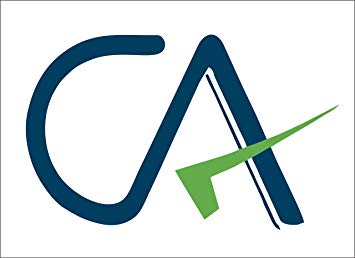Brief Overview of advisory on Financial Reporting issued by ICAI for the Current FY in the wake of businesses being impacted by coronavirus outbreak.
Areas to be considered
1. Inventory Mgt (Ind AS 2)
- It might be necessary to write down inventories to net realizable value due to reduced movement in inventory, decline in selling prices, or inventory obsolescence due to lower than expected sales.
- Ind AS 2 also provides that the allocation of fixed production on overheads to the costs of conversion is based on the normal production capacity. The amount of fixed overhead allocated to each unit of production is not increased as a consequence of low production or idle plant (which may be the case due to the shut-down effect of corona virus). Unallocated overheads are recognised as an expense in the period in which they are incurred.
2. Impairment of Non-financial Assets (Ind AS 36)
- Contraction in economic activity due to the outbreak of COVID 19 is considered to be an impairment indicator at the reporting date, which results in an impairment assessment;
- Market assumptions used to determine fair value for recoverable amounts needs reconsideration;
- Reasonable assumptions are to be taken in estimating the value-in-use and fair value less costs of disposal and ensure that the impairment loss, if any, is estimated reliably.
3. Financial Instruments
Expected Credit Loss
In respect of Ind AS 107, Financial Instruments Disclosures, entities may need to disclose the impact of COVID-19 on various credit related aspects such as methods, assumptions and information used in estimating Expected Credit Loss, policies and procedures for valuing collaterals etc.
If the entity is unable to assess the impact of COVID-19 in estimating the impairment loss due to the inadequacy of information, the same should be disclosed appropriately.
4. Leases (Ind AS 116)
- Due to COVID-19, there may be changes in the terms of lease arrangements or lessor may give some concession to the lessee with respect to lease payments, rent free holidays etc. Such revised terms or concessions shall be considered while accounting for leases, which may lead to the application of accounting relating to the modification of leases. However, anticipated revisions should not be taken into account.
- Discount rate used to determine the present value of new lease liabilities may need to incorporate any risk associated with COVID-19.
- Entities will need to determine whether as a result of COVID -19, any lease arrangement has become onerous.
5. Revenue (Ind AS 115)
Due to COVID-19, there could be likely increase in sales returns, decrease in volume discounts, higher price discounts etc. Under Ind AS 115, these factors need to be considered in estimating the amount of revenue to recognised, i.e., measurement of variable consideration.
Ind AS 115 also requires disclosure of information that allows users to understand the nature, amount, timing and uncertainty of cash flows arising from revenue. Therefore, entities may have to consider disclosure about the impact of COVID-19 on entities revenue.
6. Provisions, Contingent Liabilities and Contingent Assets (Ind AS 37)
Ind AS 37 also requires assets dedicated to a contract to be tested for impairment before a liability for an onerous contract is recognised.
Additionally, there could be losses from imposition of penalty due to delay in supply of goods, which may need to be considered under the guidance of Ind AS 115, Revenue from Contracts with Customers.
If the management is unable to assess whether some of the executory contracts are onerous due to inadequacy of information, the same should be disclosed. Management should disclose that it has assessed whether executory contracts are onerous due to the adverse impact of COVID -19. If, the management is unable to assess whether some of the executory contracts have become onerous due to inadequacy of information, the same should be disclosed.
7. PPE (Ind AS 10)
The management may have to review the residual value and the useful life of an asset due to COVID 19 and, if expectations differ from previous estimates, it is appropriate to account for the change(s) as an accounting estimate in accordance with Ind AS 8, Accounting Policies, Changes in Accounting Estimates and Errors and AS 5, Net Profit or Loss for the Period, Prior Period Items and Changes in Accounting Policies.
8. Ind AS 1
Paragraph 125 of Ind AS 1, Presentation of Financial Statements, requires an entity to disclose information about the assumptions it makes about the future, and other major sources of estimation of uncertainty at the end of the reporting period, that have a significant risk of resulting in a material
adjustment to the carrying amounts of assets and liabilities within the next financial year. COVID-19 may have created many uncertainties about the likely future scenarios which may affect the estimations of amounts recognised in the balance sheet as of reporting date. Entities shall be guided
by the prescriptions in paragraphs 125 to 133 of Ind AS 1.
9. Fair Value Measurement (Ind AS 113)
Prepares using valuation techniques may have to consider the impact of COVID-19 on various assumptions including discount rates, credit-spread/counter-party credit risk etc.
10. Going Concern Assessment
Management of the entity should assess the impact of COVID-19 and the measures taken on its ability to continue as a going concern. The impact of COVID19 after the reporting date should also be considered and if, management after the reporting date either intends to liquidate the entity or to cease trading, or has no realistic alternative but to do so, the financial statements should not be prepared on a going concern basis. Necessary disclosures as per Ind AS 1 shall also be made, such as material uncertainties that might cast significant doubt upon an entity’s ability to continue as a going concern.
11. Income Taxes (Ind AS 12)
Entities with deferred tax assets should reassess forecasted profits and the recoverability of deferred tax assets in accordance with Ind AS 12, Income Taxes, considering the additional uncertainty arising from the COVID-19 and the steps being taken by the management to control it.
12. Post Balance Events (Ind AS 10)
According to Ind AS 10, events occurring after the reporting period are categorized into two viz.
1. Adjusting events i.e. those require adjustments to the amounts recognised in its financial statements for the reporting period
2. Non-adjusting events i.e. those do not require adjustments to the amounts recognised in its financial statements for the reporting period. In certain cases, Management judgement may be required to categorize the events into one of the above categories.
However, adjustments to assets and liabilities are not appropriate for events occurring after the balance sheet date, if such events do not relate to conditions existing at the balance sheet date. Disclosure should be made in the report of the approving authority of those events occurring after the balance sheet date that represent material changes and commitments affecting the financial position of the enterprise.
Entities must disclose significant recognition and measurement uncertainties that might have been created by the outbreak of the COVID -19 in measuring various assets and liabilities. They should also disclose how they have dealt with the impact of COVID -19 on the financial position and financial performance of the entity.






